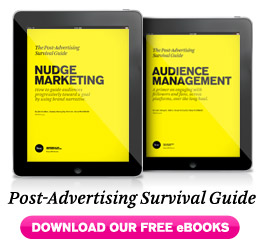 I was on my way to play golf this past weekend when I drove by a young girl selling lemonade on the sidewalk in front of her house. I have always made a point of stopping and purchasing (insert product here) if a child is selling it (not their parents—the child). Unfortunately, I was running late, and this time I couldn’t stop. It broke my heart.
I was on my way to play golf this past weekend when I drove by a young girl selling lemonade on the sidewalk in front of her house. I have always made a point of stopping and purchasing (insert product here) if a child is selling it (not their parents—the child). Unfortunately, I was running late, and this time I couldn’t stop. It broke my heart.
I pass a convenience store on the same route to the highway, and I don’t even think about stopping there for lemonade, even though the ones they sell probably taste just as good and haven’t been sitting outside in the hot sun. I don’t stop at the lemonade stand because I am craving lemonade. I stop because there’s a story behind the lemonade stand. I may not know the details, but I know it’s there, and I have an idea of what it might be. When I get home, I can mention to my wife that I stopped at a lemonade stand and tell her all the cute things the child did as she made the sale.
This isn’t insignificant. One girl’s lemonade stand is no different from (or less important than) your product, service, app or start-up. I’m going to stop/purchase/download only if I have a reason to care. Maybe I care about you, or maybe I just care about me (which is usually the case). Something in your story has to resonate with me, and if you’re simply spewing a bunch of jargon and stats, I’ll just keep on going, because I can’t be late for my tee time.
Audiences don’t think of the world from your brand’s point of view. They don’t care about the fact that your app launched today and you really want big first-week numbers. GM’s recent exit from Facebook was a clear sign that it just doesn’t get it. Marketing guru Seth Godin nailed this point in a recent interview he did on MSNBC for the American Express OPEN Forum. Take a look:
Godin’s example of the farmers market, at 1:51, is reminiscent of a video we often share here at Story, of Rolf Jensen, author of The Dream Society and director of Dream Company, using eggs as an example of the value of stories. It’s a video well worth watching:
CMOs and brand managers should be asking themselves the question Godin asked,
“Are you going to build something that’s as interesting as the Leaning Tower of Pisa? Are you going to make a product or service that when people are done using it, they can’t help but tell their friends about? The story is all that’s going to spread. Not the facts, but the story.”
Take a dead-serious look at your brand’s content-marketing efforts. Are you giving your audience reasons to care about you? Are you giving your audience content that they not only want but also want to share?
Most importantly, when they drive by your version of a lemonade stand, will they feel compelled to stop?
(image)



Pingback: What a Lemonade Stand Taught Me about Storytelling via @PostAdvertising | fabriziofaraco
Pingback: Is Tumblr Doomed? via @PostAdvertising